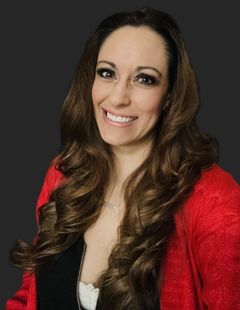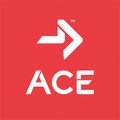Last Updated June 7, 2024 (originally published September 2, 2022)
Starting a new business can feel like a daunting task, and many newcomers to the fitness industry wonder how to get started as a personal trainer. I started my fitness career more than 20 years ago, in 2003, and want to share some lessons I’ve learned along the way.
As I reflect on why it began, how it began, and how it’s going, I become more aware of what I wish I had known starting out. My hope in sharing these musings is twofold: First, that the messages resonate with some of you who are veterans in the industry. Second, that what I share might guide a new professional as they begin their unique journey forward. Here, I share 12 lessons I wish I had known all those years ago.
-
The value of rapport. I began this journey thinking if I just know the science, everything else will fall into place. This is only half true. Rapport is the foundation of all we do—not the science. Our knowledge of science informs a direction forward in program design; however, there are no programs to design if we do not prioritize building relationships with those we serve first.
-
The power of networking. No one achieves success alone. The work we do with clients requires a team approach. You are far more successful when you surround yourself with individuals who have different talents and scopes than you bring to the table. Not only does this benefit you, but this also elevates your clients’ experiences with you.
-
Assessments are not always the first priority. I realized a few years into my experience that I can treat every movement as an assessment without subjecting a client to a full battery of assessments. Assessment selection should be deliberate, goal driven and consider the skills, abilities and activity history of the client.
-
The value of setting boundaries. I was, as many are, eager to get started and “do it all well.” Here’s where I went off course. You can either do it all or do it well. I’m guessing you want to do it well over doing it all. Set boundaries, which includes when you are available to clients (response time, how you will communicate, etc.). You cannot be available 24/7/365 and create success; you will achieve little more than burnout and a waning interest in your work. Carve out “you” time to recharge and consider that time “nonnegotiable.”
-
Programming for recovery. I naively thought that if I told clients to stretch and recover, they would. I learned, much later than I should have, that I need to include those elements in their programs and provide them with at-home dynamic recovery and mobility and stability exercises. I also learned that I needed to guide them through active recovery at the end of each session.
-
Abandoning the plan is ok. Clients’ motivation can wane just like ours. They come to us with their stress, their stories, their celebrations, and their concerns. Some days, it’s okay to scrap the session you have planned and engage in a walk and talk or a relaxing restorative yoga session. It’s still movement and it is, at times, what you both need.
-
Impostor syndrome is common. For the longest time, I questioned my “enoughness” and forgot that I have so much to offer the industry, my clients, my learners, and my family and friends. I started viewing moments of questionable confidence as opportunities to learn and advance my knowledge and skill.
-
Every coach needs a coach. Yes, we are experts in our fields, and we are solidly credentialed and educated. But, we still need a support system that can help us recognize and change habits and behaviors that might be holding us back from achieving the best version of who we want to be. Find a mentor. I started mentoring for this reason and it is honestly one of the best parts of my career.
-
Do what scares you. I am far more introverted than I am extroverted, so it takes immense energy and courage for me to put myself out there. The idea of presenting at a national conference or in a live webinar is initially terrifying. But I learned that in order to advance, you must challenge yourself and be willing to do what scares you. Use that energy as good energy to drive you forward. It leads to amazing places.
-
Business knowledge is a must. We are scientists by trade and education. However, running your own business is a uniquely challenging prospect. Take time to learn how to do this and how to do it well. Make business classes a part of your continuing education plan.
-
Motivational interviewing is a necessary skill. Learn about this tool. Use this tool. Doing so will help you guide your clients in such a way that they become confident and capable travelers along their journey to change.
-
Trust your own brilliance. I found many of the challenges I once faced were because I lacked a necessary ingredient to being successful—confidence. Even though I had two degrees and a high-quality certification, I somehow felt under-prepared and found ways to question myself instead of going with my instinct and placing faith in my skills. You aren’t expected to know everything—that just isn’t realistic. First, trust in your knowledge and be comfortable with the fact that you won’t always know what to do or have the “right" answer. Second, commit to learning more as you grow in your professional role and experience and share your expertise with your clients. Lastly, if you find yourself questioning as I did, conduct a SWOT analysis to remind yourself of your strengths and identify what opportunities there are for skill expansion and knowledge improvement.
The list of “what I wish I knew then” transcends these 12 lessons, but these are the lessons that I consider to be the most valuable. Embracing the knowledge I gained from these lessons has done more to shape and advance my career than any degree. Experience is the toughest teacher, but it is also the most honest one. Be open to learning and growing in ways that you least expect, and you will soar mightily.
If you’re considering becoming a personal trainer and want a faster, easier and less stressful way to get started with your career, check out the new ACE Personal Trainer Certificate Exam, which is a non-proctored, 100% online and open-book exam. This credential demonstrates that you have the level of competence needed to begin working as a personal trainer right away.




 by
by 







 by
by